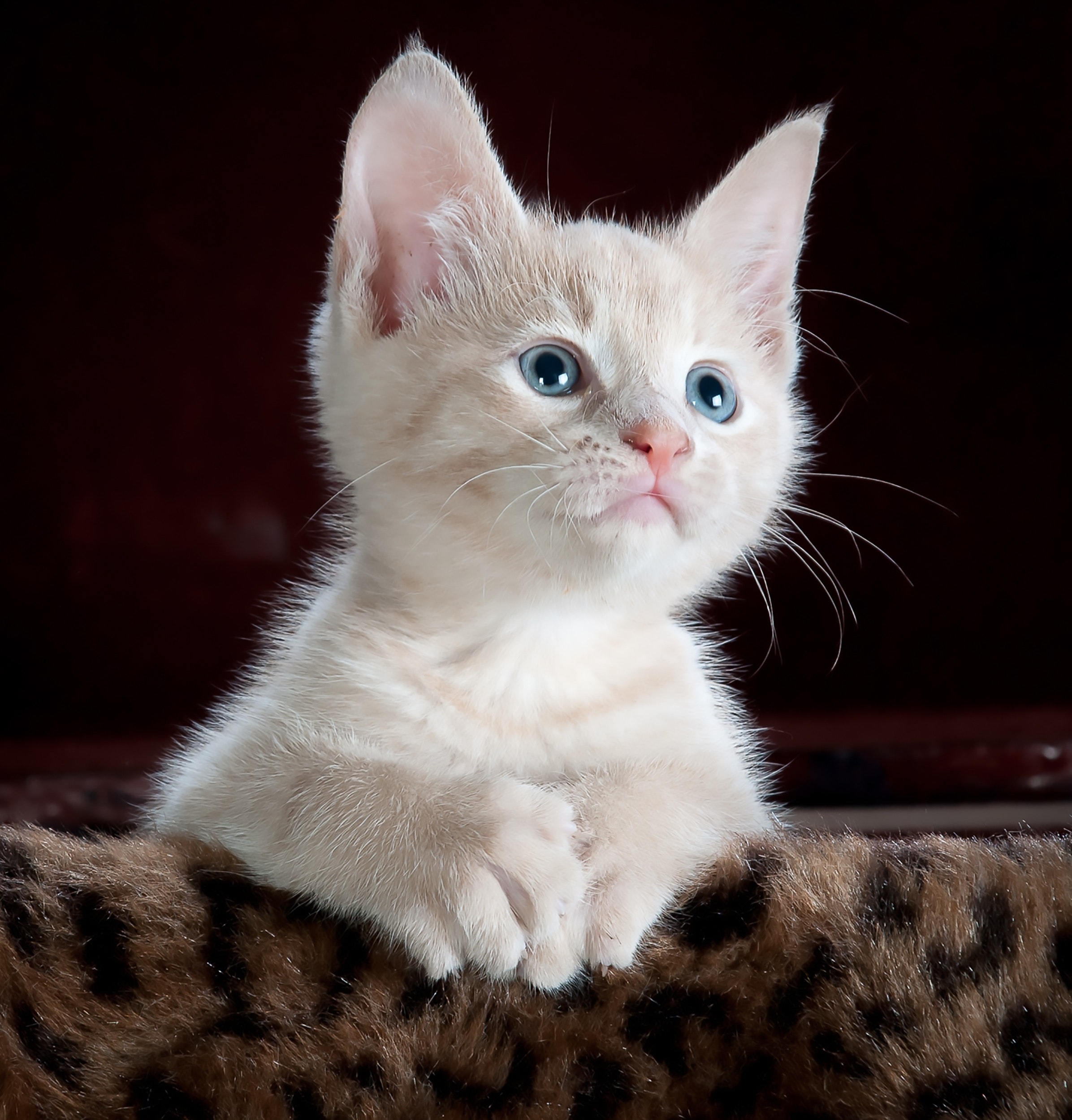You knew getting a cat would come with specific responsibilities, but dealing with diarrhea likely wasn’t at the top of your list. Unfortunately, feline diarrhea is an unpleasant reality for many cat owners at some point. Whether your cat has an upset tummy from eating something it shouldn’t have or is suffering from an infection, diarrhea is messy and stressful for you both.
You can do several things at home to help get your cat’s digestion back on track and make cleanup a bit easier. Paying close attention to your cat and its litter box habits, keeping it well-hydrated, and feeding it a bland diet are all effective ways to start. You should also thoroughly disinfect any area where accidents occur to avoid reinfection.
While most cases of cat diarrhea will clear up in a couple of days with home treatment, if the problem persists or your cat shows other symptoms, it’s best to have your vet examine them. The last thing you want is for your feline friend to become dehydrated or suffer other complications. Stay calm—with some care and patience, you’ll get through this unpleasant bump in the road together and have your cat back to its usual self in no time.
What Causes Diarrhea in Cats?
Diarrhea in cats usually comes down to one of a few common causes:
Dietary indiscretion
Your cat may have eaten something that didn’t agree with them, like table scraps or trash. To fix this, withhold food for 12-24 hours to give their stomach a rest. When reintroducing food, stick to bland, easy-to-digest options like boiled chicken and rice.
Parasites
Intestinal parasites like worms can irritate your cat’s gut and cause diarrhea. Have a stool sample checked by your vet, who can then prescribe deworming medication. Properly clean the litter box during treatment and a few weeks afterward.
Bacterial overgrowth
Too much harmful bacteria in the gut can lead to diarrhea and other issues. Your vet may prescribe a round of antibiotics to help restore balance. Probiotics can also help support good gut health.
Other causes
Food allergies, intolerances, inflammatory bowel disease, pancreatitis, or hyperthyroidism may trigger diarrhea. If the problem persists over a few days, it’s best to have your vet examine your cat to determine the underlying cause and appropriate treatment. They can also provide supportive care, like IV fluids if your cat dehydrates.
With the proper diagnosis and treatment, cat diarrhea is usually easily managed. But when in doubt, don’t hesitate to call your vet, especially if your cat seems lethargic or the diarrhea is frequent or contains blood. Your furry friend will be back to their usual self in no time!
Signs Your Cat Has Diarrhea
If your cat has diarrhea, you’ll notice some telltale signs.
- Frequent, loose, watery stools. Instead of firm, shaped poop, diarrhea stools are loose, unformed, and wet. Your cat may need to go more often, even urgently at times.
- Stomach gurgling or gas. Diarrhea can lead to increased gas, stomach noises, and discomfort for your cat.
- Lethargy or decreased appetite. Diarrhea causes dehydration and electrolyte imbalance, making your cat tired and less interested in food.
- Accidents outside the litter box. Severe diarrhea may occur suddenly, and your cat won’t reach the litter box in time.
- Mucus or blood in the stool. It can indicate an infection or other issue and requires vet care.
Call your vet if your cat shows these symptoms for over a few bowel movements or looks pretty ill. They can assess your cat’s hydration level and may prescribe medication to help resolve the issue, allowing your feline friend to get back to happy, healthy habits.
When to See the Vet for Cat Diarrhea
If your cat’s diarrhea lasts more than a couple of days or shows any of the following signs, it’s best to have your vet examine them:
- Severe or bloody diarrhea: This can lead to dehydration and electrolyte imbalance. Seek immediate vet care.
- Loss of appetite or vomiting: This makes dehydration and malnutrition more likely. Call your vet right away.
- Lethargy or weakness: Diarrhea that causes a cat to seem very tired or unable to stand requires emergency vet attention.
- Fever: A high fever and diarrhea can indicate an infection and need to be addressed by a vet promptly.
- Recent medication or diet change: Tell your vet if the diarrhea started after starting a new medicine or abruptly switching your cat’s diet. They may want to reevaluate the treatment or diet.
- Underlying condition: If your cat has a chronic illness like kidney disease or diabetes, even a short bout of diarrhea should be reported to your vet immediately. They may want to check for complications and make adjustments to treatment.
It’s always better to be safe than sorry about your cat’s health. Don’t hesitate to call your vet for advice on cat diarrhea or bring your cat in for an exam immediately if their condition seems severe or does not start to improve within a day or so of home treatment. Your vet can check for dehydration or other issues, run tests to determine the cause of the diarrhea, and recommend the most effective treatment to get your cat back to good health.
At-Home Treatments for Mild Cat Diarrhea
When your cat has diarrhea, there are a few at-home treatments you can try before rushing to the vet. Here are some gentle ways to help get your feline friend back to normal.
Dietary Changes
Switch your cat to a bland, gentle diet like boiled chicken, rice, and pumpkin. The fiber in pumpkin can help firm up stools. Try a probiotic formulated for cats to restore balance to the gut flora. Stop any treats, table scraps, or new foods that may be the culprit. After a few days on the bland diet, slowly mix in their regular food.
Increase Fluids
Giving your cat extra fluids helps prevent dehydration from diarrhea. Provide fresh, clean water, and you can also syringe feed unflavored Pedialyte or oral electrolyte solutions available from your vet to replace lost nutrients.
Probiotics
Oral probiotic pastes or powders contain good bacteria to restore balance to the digestive tract. Follow the directions on the product and administer as directed. Probiotics are very safe and natural.
If diarrhea persists for over a couple of days, or your cat shows other symptoms like lethargy or vomiting, it’s best to take them to the vet to determine the underlying cause and get proper treatment. People can usually manage mild diarrhea at home. Still, kittens, senior cats, and those with medical issues should seek immediate attention as they are more at risk of dehydration and electrolyte imbalance.
Preventing Future Cat Diarrhea Episodes
To reduce the chances of your cat experiencing diarrhea again in the future, take some preventative measures. Feed your cat a high-quality, balanced diet formulated for their age and activity level. Avoid switching your cat’s diet abruptly, which can upset their stomach. Instead, gradually mix the new food with the old food over 7-10 days.
Give your cat constant access to clean water to keep them hydrated. Dehydration is a concern with diarrhea, so monitoring your cat’s water intake is essential.
Wash food and water bowls regularly with hot, soapy water to remove bacteria. Then rinse and dry thoroughly.
Keep the litter box clean by scooping solid waste daily and changing litter often. Cats can be fussy about a dirty litter box and may avoid using it, leading to accidents outside the box.
Take your cat for regular vet checkups and vaccinations. Early treatment of any parasites or infections can help prevent diarrhea and other issues.
Limit stress and anxiety in your cat’s environment. Stress can negatively impact a cat’s digestive system and immune health. Provide interactive playtime, affection, scratching posts, hiding spots, and multiple litter boxes.
By following these best practices, you’ll keep your furry friend as happy and healthy as possible, with a lower chance of upset stomach and messy accidents in the future! Be attentive to any changes in your cat’s digestion or behavior, though, and call the vet right away if diarrhea returns or your cat seems lethargic or dehydrated.
Conclusion
So now you’re equipped with the knowledge to handle cat diarrhea and keep your furry friend healthy and your home clean. Remember, the most important things are keeping your cat hydrated, giving them bland and gentle foods while their stomach settles, and cleaning up accidents thoroughly and quickly. If symptoms persist over a few days or your cat seems very sluggish, it’s best to take them to the vet to determine the underlying cause. While dealing with cat diarrhea is no fun for anyone, the good news is that, in most cases, it will pass within a couple of days with some TLC and patience. Give your cat extra love during this time, and you’ll get through it. The joys of pet ownership, right? At least we are satisfied knowing we gave our cats a loving home, even if it means the occasional accident or two. Such is the life of a devoted cat parent!

